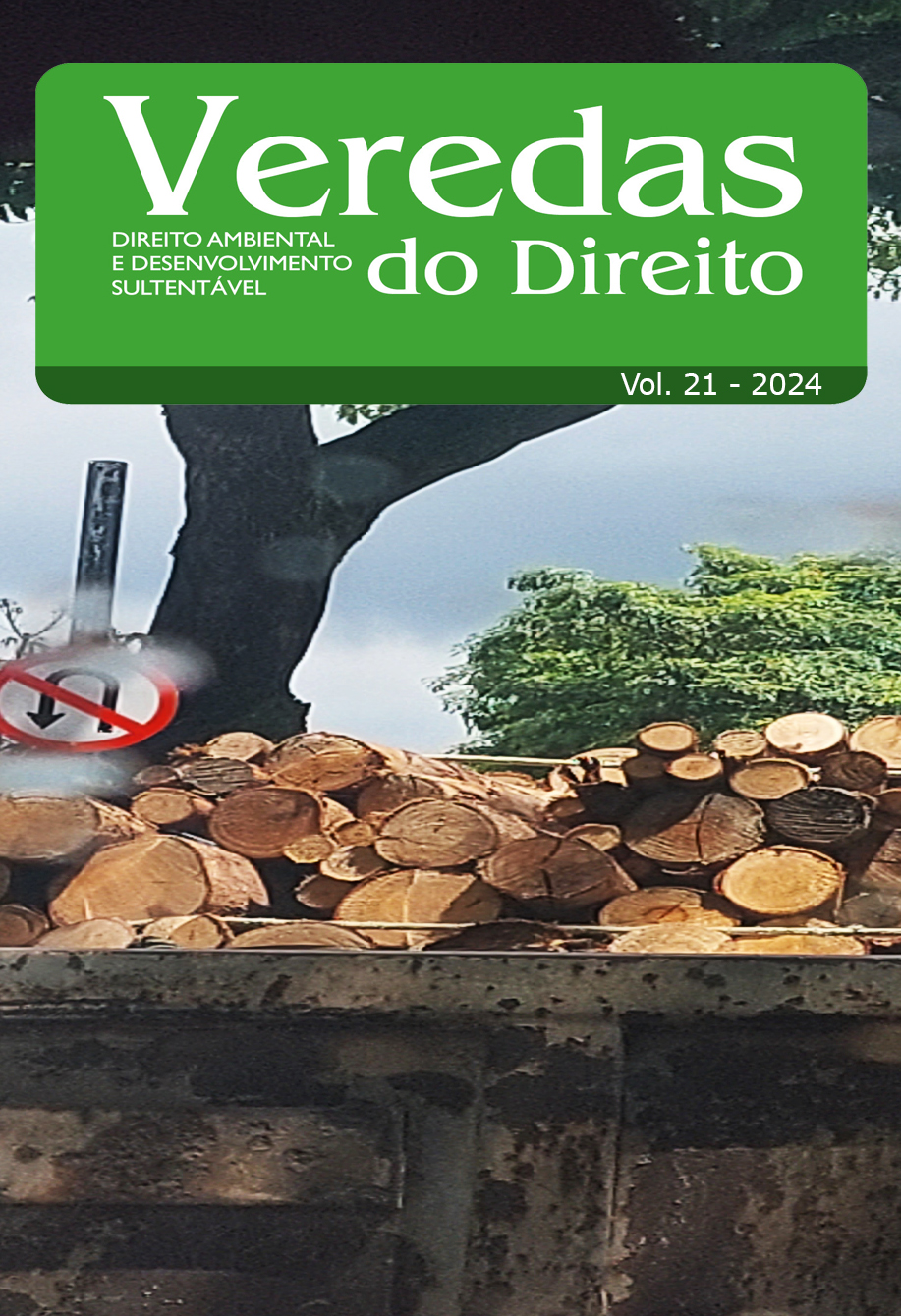INCOMPATIBILITIES BETWEEN AGRIBUSINESS AND THE CONSTITUTIONAL ENVIRONMENTAL ORDER
DOI:
https://doi.org/10.18623/rvd.v21.2688Abstract
This research resumes the concept of the right to development enshrined in the ideals of the 1988 Constitution of the Federative Republic of Brazil (CRFB). As part of such right, the constitutional environmental order represents an important instrument for improving reality, ensuring that all development processes are subject to the purposes of the State, as listed by society itself in the CRFB. It is in this sense that the right to development is related to agribusiness, a sector that represents the current Brazilian agrarian model and has played a strategic role in the national economy in recent decades. Hence, this article highlights the incompatibilities of Brazilian agribusiness with the environmental order established by the CRFB. Based on the hypothetical-deductive method, this study starts from the problem mentioned to verify the hypothesis offered and fulfill the objective presented, without losing sight of the critical perspective on the phenomena studied. As for research techniques, this is bibliographical and documentary research. The contribution identifies important contradictions and provides a benchmark for the study of the right to development from a broad perspective, in which this right is confronted with the model and the negative externalities of a sector that plays a strategic role in the Brazilian economy.
Published
How to Cite
Issue
Section
License
I (we) submit this article which is original and unpublished, of my (our) own authorship, to the evaluation of the Veredas do Direito Journal, and agree that the related copyrights will become exclusive property of the Journal, being prohibited any partial or total copy in any other part or other printed or online communication vehicle dissociated from the Veredas do Direito Journal, without the necessary and prior authorization that should be requested in writing to Editor in Chief. I (we) also declare that there is no conflict of interest between the articles theme, the author (s) and enterprises, institutions or individuals.
I (we) recognize that the Veredas do Direito Journal is licensed under a CREATIVE COMMONS LICENSE.
Licença Creative Commons Attribution 3.0







